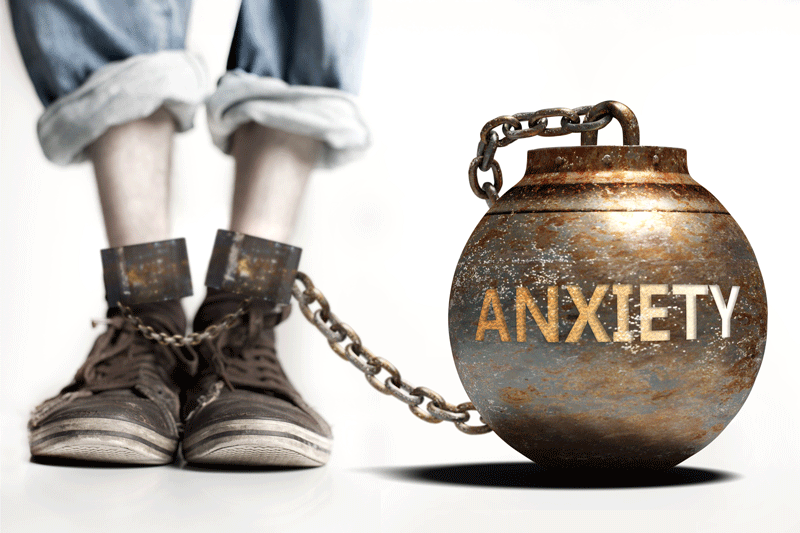(Note: “Aspie” is my preferred term for people on the Autism Spectrum)
Effective communication is the foundation of strong relationships and personal growth. Sensory and emotional processing disorders affect children on the Autism Spectrum and may persist into adulthood, affecting all aspects of one’s life.
Aspies are characterized by social awkwardness, attributable to differences in how we process sensory stimuli and emotions, which in turn affect our ability to communicate effectively. It’s important to understand the why of communication barriers in order to reduce Autism stigma, which itself is influenced by “public and professional understanding of autism in combination with interpretation of visible autistic traits” (Turnock et al., 2022).

Key Factors Affecting Autistic Social Communication
Alexithymia: Alexithymia is characterized by difficulties identifying and describing one’s own emotions. Loosely translating to “no words for emotion,” it’s estimated to affect 1 in 10 people. Alexithymia is not a condition recognized by the Diagnostic and Statistical Manual of Mental Disorders (DSM-5). Rather, it’s a secondary diagnosis in mental health and neurocognitive/ developmental conditions such as Depression, Autism, and ADHD. Not every Autistic person has Alexithymia, but estimates across research studies suggest it occurs at a rate of approximately 50 to 60 percent (Neff, n.d.).
Because Alexithymia affects how one recognizes and distinguishes between different emotions and bodily sensations, those affected may “come across as being out of touch or apathetic. In a relationship, the person may appear incapable of empathy” (Cherney, 2020).
“People who live with alexithymia are less likely to infer or sense the emotions of others, so unless you state your feelings explicitly, your partner might seem to ignore them” (Lovering, 2022).
Rejection Sensitive Dysphoria (RSD): RSD is an experience of severe emotional pain due to feelings of failure or real or perceived rejection. It is not a diagnosis either. Instead, it’s a type of social anxiety that leads to people feeling overwhelmed by intense emotions such as anger, shame, hurt, and sadness.
RSD is probably caused by brain structure differences that affect how rejection-related emotions and behaviors are regulated, resulting in more intense emotional reactions.
“Psychologist William W. Dodson explains, “’ Rejection sensitivity is like having an emotional sunburn—every touch or comment feels more painful and overwhelming.’ This analogy highlights how minor comments or actions can be perceived as threats by those who are rejection sensitive” (Sanders, 2024).
Negative Thought Patterns and Beliefs
Rejection sensitivity leads to a negative interpretation of often innocuous social cues, heightening anxiety and stress. Fear of rejection may then lead to behaviors that provoke rejection, such as withdrawing from social interactions or becoming overly defensive.
“Cognitive-behavioral theories suggest that negative thought patterns and beliefs about oneself and others contribute to this heightened sensitivity. For instance, thoughts like “I’m not good enough” or “People will reject me” exacerbate the fear of rejection” (Sanders, 2024).
Dr. Tasha Oswald writes, “Most teens and adults with high-functioning autism fear rejection… When conflict arises, it can be extremely upsetting… The instinct might be to avoid conflict…[but] avoiding conflict can mean avoiding deep, meaningful relationships” (Oswald, 2021).
Feelings of rejection often lead to shame. Shame invokes the fight-or-flight response, which may entail “becoming defensive, explaining or defending your actions, or arguing with others. A flight response may include withdrawing, self-isolating, walking out or running away, not talking… [and] avoiding eye contact.”
But neither fight nor flight will “eliminate the conflict [or] the root of the issues you’re having in that relationship. Furthermore, it may hurt the person you’re in conflict with. It can cause them to feel…invalidated or ignored. And [they]…may lash out at you to protect themselves, which causes further conflict” (Oswald, 2021).
C.N. Ginapp et al. conducted focus groups to learn how ADHD teens [a Neurodivergent condition closely related to ASD] perceived ‘typical’ ADHD symptoms. High among their concerns were Alexithymia and Rejection Sensitivity.
Alexithymia: “I can’t really verbalize what it is that I’m feeling, which frustrates me even more because I can’t put the words to what I’m feeling … If I don’t know what’s wrong with me, then why in the world am I upset?…[S]ometimes I don’t even know what I feel.”
RSD: “It’s literal pain for me…in my chest… I’ll sit and think about it for a…long time and nit-pick it and replay it over and over again to the point where people are like, a lot of time has gone by, it’s not that big of a deal, let it go, and I’m still sitting there pondering everything I could have done” (Ginapp, 2023).
Being unable to perceive one’s own – or other’s – emotions has a profound impact on mental health, behavior, and relationships.
The prevailing belief is that RSD may be a consequence of differences in brain structure. Structural differences affect how the brain regulates rejection-related emotions and behaviors, making the emotions much more intense.
According to author Olivia Sanders, “People with rejection sensitivity may frequently misinterpret neutral or ambiguous social cues as negative, leading to increased anxiety and stress. This can create a vicious cycle where the fear of rejection leads to behaviors that inadvertently provoke rejection, such as withdrawing from social interactions or becoming overly defensive.
“Understanding rejection sensitivity requires recognizing the underlying cognitive and emotional processes. Cognitive-behavioral theories suggest that negative thought patterns and beliefs about oneself and others contribute to this heightened sensitivity. For instance, thoughts like “I’m not good enough” or “People will reject me” can exacerbate the fear of rejection” (Sanders, 2024).
Rejection and Shame
How do Alexithymia and RSD affect communication in important relationships? Dr. Tasha Oswald writes,
“While a fight or flight response may temporarily make you feel better, “Most teens and adults with high-functioning autism fear rejection and will do what they can to avoid it… When conflict arises…it triggers feelings of rejection and shame. The instinct might be to avoid conflict… Avoiding conflict can mean avoiding deep, meaningful relationships.”
“A fight response may entail becoming defensive, explaining or defending your actions, or arguing with others. A flight response may include withdrawing, self-isolating, walking out or running away, not talking, looking at your phone/computer/tablet, [and] avoiding eye contact” (Oswald, 2021).
It doesn’t eliminate the conflict and the root of the issues you’re having in that relationship. Furthermore, it may hurt the person you’re in conflict with. It can cause them to feel…invalidated or ignored. And… that’s a very painful feeling. It may also cause them to lash out at you to protect themselves, which causes further conflict.
“Over time, the cycle of conflict continues until it escalates, and the relationship or friendship usually ends or gets stuck…as dissatisfying…lacking intimacy, safety, and trust.”
Non-Adaptive Emotion Regulation + Intense Emotional Pain
Alexithymia is essentially non-adaptive emotional regulation, while Rejection Sensitivity may be viewed as behavioral manifestations of intense emotional pain. Those with RSD are “vigilant in observing and monitoring the moods and behaviors of others and are overly sensitive to interpersonal problems” (Morin, 2019).
Different Presentations
RSD doesn’t present the same way in all Autistic/Neurodivergent people. And its causes differ. “Possible causes include childhood experiences like critical parents and bullying, along with biological factors and genetics” (Morin, 2023).
In her Blog, Neurodivergent Insights, author Megan Anna Neff points out, “Our minds, by their very nature, are wired to pick up even the faintest hints of rejection, which perpetually fuels our quest for these cues in our surroundings. Regrettably, this constant vigilance can reinforce our belief that rejection is an ever-present force in our lives” (Neff, n.d.).
No Research Literature?
I was surprised by how difficult it was to find any literature examining potential links between Rejection Sensitivity and Alexithymia. Emotional dysregulation itself has been the subject of extensive research, but the keywords autism, Alexithymia, and Rejection Sensitivity – in any combination – led to nothing. Why? A link between these processes seems probable.
Final Thoughts
Some researchers have suggested that affected people may “go through life not realizing they have RSD. This can lead to intense and unnecessary suffering without the language to communicate their needs. The intense feelings of rejection, shame, and devastation from RSD can be overwhelming and debilitating for daily life, work, and relationships…Learning how to manage and cope with these intense emotional reactions becomes essential for living a fulfilling life” (Lee, 2024).
“Autism doesn’t come with an instruction guide. It comes with a family who will never give up.”
– Kerry Magro (80 Autism Quotes to Inspire and Educate, 2023)
Annie Kent, MA, spent two decades working in public sector disability, mental health, and infectious diseases advocacy and education. Diagnosed with three closely related categories of neurodiversity, a lack of awareness and understanding led to autistic burn-out and retirement from the field. She remains an active advocate, learning and engaging remotely with several Autism organizations and forums, including Autism Northwest. For more information, visit her website, www.aspiefemmepress.ca, or email Annie at ajollymo@lakeheadu.ca.
References
80 Autism Quotes to Inspire and Educate. (2023, October 11). Www.apexaba.com; APEX ABA Therapy. https://www.apexaba.com/blog/autism-quotes
Assertiveness Skills: Introduction. (2018, July 11). Lifeonthespectrum.net. https://www.lifeonthespectrum.net/blog/?page_id=3043 (Assertiveness Skills: Introduction, 2018; Morin, 2019)
Cherney, K. (2020, January 28). Alexithymia: Causes, Symptoms, and Treatments. Healthline. https://www.healthline.com/health/autism/alexithymia
Ferguson, S. (2022, December 20). STOP Mindfulness: What Is It? Psych Central; Healthline Media. https://psychcentral.com/health/4-quick-mindfulness-techniques
Kinnaird, E., Stewart, C., & Tchanturia, K. (2019). Investigating Alexithymia in autism: a Systematic Review and meta-analysis. European Psychiatry, 55(1), 80–89. https://doi.org/10.1016/j.eurpsy.2018.09.004
Lee, C. I. (2024, June 12). How to Manage Rejection Sensitive Dysphoria (RSD) for Adults with ADHD – LA Concierge Psychologist. LA Concierge Psychologist; Dr. Crystal I. Lee. https://laconciergepsychologist.com/blog/rejection-sensitive-dysphoria-adhd/
Lovering, N. (2022, September 7). Alexithymia in Relationships: Effects and Communication Tips. Psych Central; Healthline Media. https://psychcentral.com/relationships/alexithymia-in-relationships
Magee, R. (2020, March 23). The S.T.O.P. Practice: Creating Space Around Automatic Reactions. Mindful; Mindfulness United Pty Ltd. https://www.mindful.org/the-s-t-o-p-practice-creating-space-around-automatic-reactions/
Morie, K. P., Jackson, S., Zhai, Z. W., Potenza, M. N., & Dritschel, B. (2019). Mood Disorders in High-Functioning Autism: The Importance of Alexithymia and Emotional Regulation. Journal of Autism and Developmental Disorders, 49(7), 2935–2945. https://doi.org/10.1007/s10803-019-04020-1
Morin, A. (2019). Why Are Some People More Sensitive to Rejection Than Others? Verywell Mind; Dotdash Media, Inc. https://www.verywellmind.com/what-is-rejection-sensitivity-4682652
Neff, M. A. (n.d.). Rejection Sensitive Dysphoria, Relationships, and How to Overcome Challenges. Insights of a Neurodivergent Clinician. https://neurodivergentinsights.com/blog/rejection-sensitive-dysphoria-relationships
Oswald, T. (2021, March 3). Dealing with Conflict on the Autism Spectrum. Tasha Oswald; Open Doors Therapy. https://opendoorstherapy.com/dealing-with-conflict-on-the-autism-spectrum/
Petrova, V. (2021, July 29). How to Deal With People Who Take Things Personally. Paso Robles Press. https://pasoroblespress.com/commentary/how-to-deal-with-people-who-take-things-personally/
Sanders, O. (2024, May 18). 8 Steps to Manage Rejection Sensitivity. ENotAlone; Margarita Nahapetyan. https://www.enotalone.com/article/mental-health/8-steps-to-manage-rejection-sensitivity-r13399/
Turnock, A., Langley, K., & Jones, C. R. G. (2022). Understanding Stigma in Autism: A Narrative Review and Theoretical Model. Autism in Adulthood, 4(1), 76–91. https://doi.org/10.1089/aut.2021.0005




